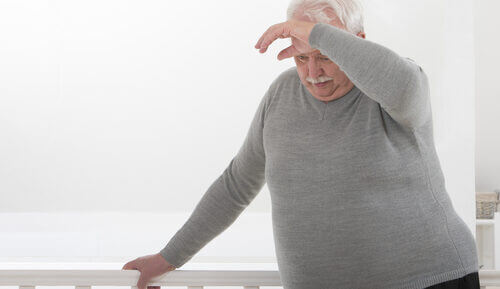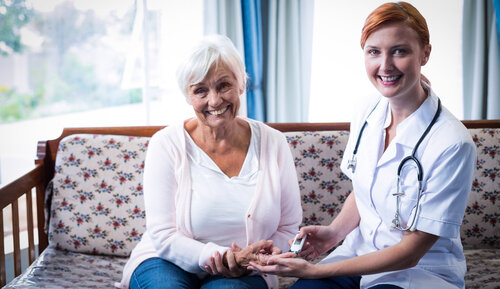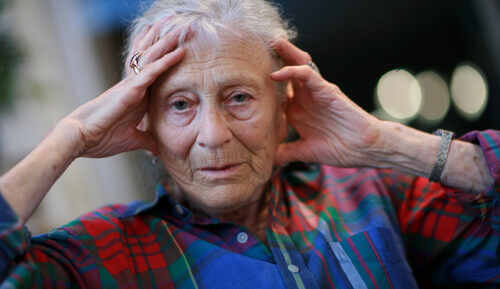
Page contents
High blood pressure, also called hypertension, is a common problem in the UK, with around 1 in 3 adults having it.
Worryingly, around half of these people don’t even know they have high blood pressure because it often has no symptoms. Left undetected and untreated, high blood pressure can cause very serious health problems including stroke or heart attack.
What is high blood pressure?
Blood pressure is the force with which your heart pumps blood around your body. This force is measured in millimetres (mm) of mercury (Hg) using a cuff that squeezes your upper arm.
If these numbers are too high, it means that too much pressure is being put on your blood vessels which could damage them and in turn cause serious health problems.
Your blood pressure should ideally be between 90/60mmHg and 120/80mmHg (this is different if you are over 80, 150/90mmHg in a medical practice or 145/85mmHg at home).
Low blood pressure is 89/59mmHg or lower.
High blood pressure, or hypertension, is 135/85 or above on a home reading, or 140/90mmHg when taken in a medical practice such as a GP or pharmacy.
Is high blood pressure more common in older people?
A 2021 survey of England found that hypertension is by far most common in older people, with 60% of over 60s having it. This is nearly twice as many as the age group below, 45 – 64-year-olds, of which 35% had high blood pressure.
Being over 65 years old is one of the risk factors for developing high blood pressure:
Other risk factors include:
- Unhealthy lifestyle habits, such as:
- Poor diet, particularly one that is high in salt and low in fruit and vegetables
- Obesity
- Not enough exercise
- Drinking too much alcohol
- Smoking
- Consuming too much caffeine
- Stress
- Pregnancy
- Diabetes
- Kidney disease
- Being of black African or black Caribbean descent
What happens if hypertension goes untreated?
High blood pressure can be treated by:
- Lifestyle changes, including managing stress, a healthy diet, getting regular exercise, quitting smoking and reducing or quitting alcohol
- Medication
If left untreated, high blood pressure can lead to:
- Stroke
- Heart attack or heart failure
- Vascular dementia
- Kidney failure or kidney disease
- Loss of vision
Signs and symptoms of high blood pressure
You may not see any symptoms of high blood pressure. This doesn’t mean that it’s not a problem, the hypertension could still lead to one of the abovementioned serious medical conditions.
Some symptoms you might notice include:
- Blurred vision
- Headaches
- Dizziness
- Nausea
- Nosebleeds
- Shortness of breath
- Chest pains
If you are a carer to an older person, you may not see any symptoms yourself.
The only way to be sure about blood pressure is to have it tested. You can go to your GP or sometimes local pharmacy, or buy a home blood pressure cuff. Be aware that blood pressure does fluctuate, so taking it at different times of day can give you a clearer average reading.
Find your ideal care home
- Explore a wide range of care options and facilities
- Read independent ratings and reviews
- Connect directly with care homes to book a tour and discuss your needs
5 tips to reduce high blood pressure in older people
As high blood pressure can be caused by lifestyle, there are steps you can take to prevent hypertension or lower your blood pressure.
Tips for reducing blood pressure for older people include:
Manage stress
Stress can be a major cause of hypertension and some sources suggest that part of the problem is how people manage stress. If you deal with stress by smoking, drinking or eating junk food, try to find healthier coping mechanisms, such as:
- Doing some exercise; a walk outdoors can really help to clear your head
- Doing an activity that you love and find relaxing, such as cooking a healthy meal, reading a novel or arts and crafts
- Talking it through with a loved one
- Organising a task you are stressed about into small, achievable steps and working through them at a steady pace
If you feel you need, or would benefit from, more professional help with your stress, your GP can guide you to services in your area.
If you live in England and struggling with anxiety or depression, you can refer yourself for NHS talking therapy.
Adopt a healthy diet
The food you eat on a regular basis can have an impact on your blood pressure.
Salt is known to actively raise blood pressure, so stopping adding salt to your food and avoiding highly-processed food that’s packed with salt, such as ready meals and takeaways, can help.
Conversely, fruit and vegetables actively lower blood pressure as they contain potassium, particularly spinach, bananas, oranges, avocados and sweet potatoes.
There is a way of eating specially designed to lower blood pressure called the DASH diet. It stands for Dietary Approach to Stop Hypertension.
The DASH diet is high in fruits, vegetables and whole grains and low in salt, sugar and unhealthy fats.
Keep active
Keeping physically active as an older person can be more challenging than it may have been in younger years, but it’s a really important for reducing the risk of illness and maintaining mobility and independence.
We have further advice about physical activity and exercise for older people.
Reduce or quit smoking and drinking
Both smoking and drinking alcohol can raise your risk of high blood pressure, as well as vascular dementia.
It’s never too late to reduce your intake or quit altogether.
We have further advice about smoking and drinking:
- Advice on quitting smoking: Tips to help an older person quit
- Alcohol and dementia: How drinking damages the brain
- Does smoking cause dementia?
Get your blood pressure checked regularly
As well as going to your GP, you can buy home blood pressure monitors online or at a pharmacy.
There are great instructions on how to measure your blood pressure at home here.


